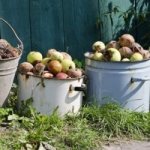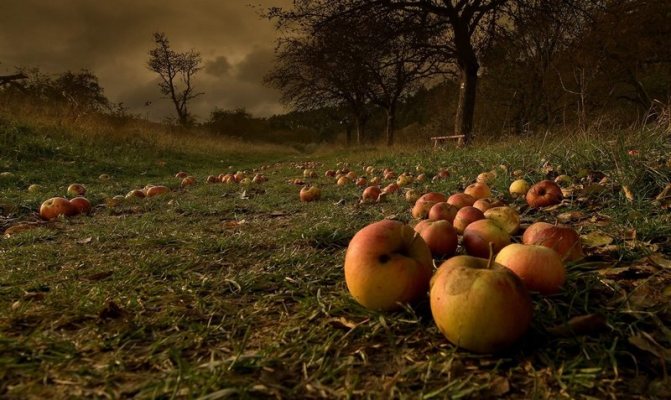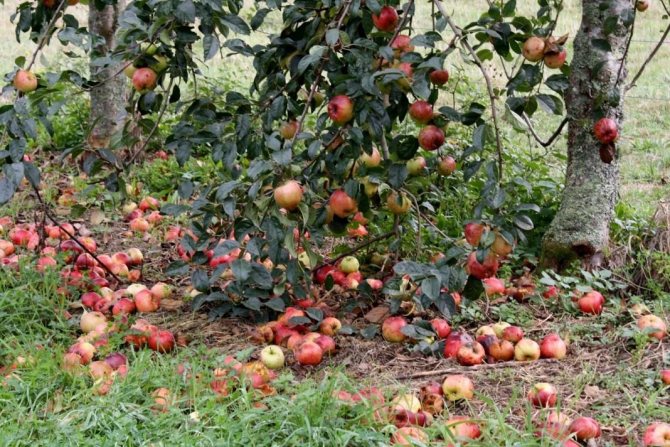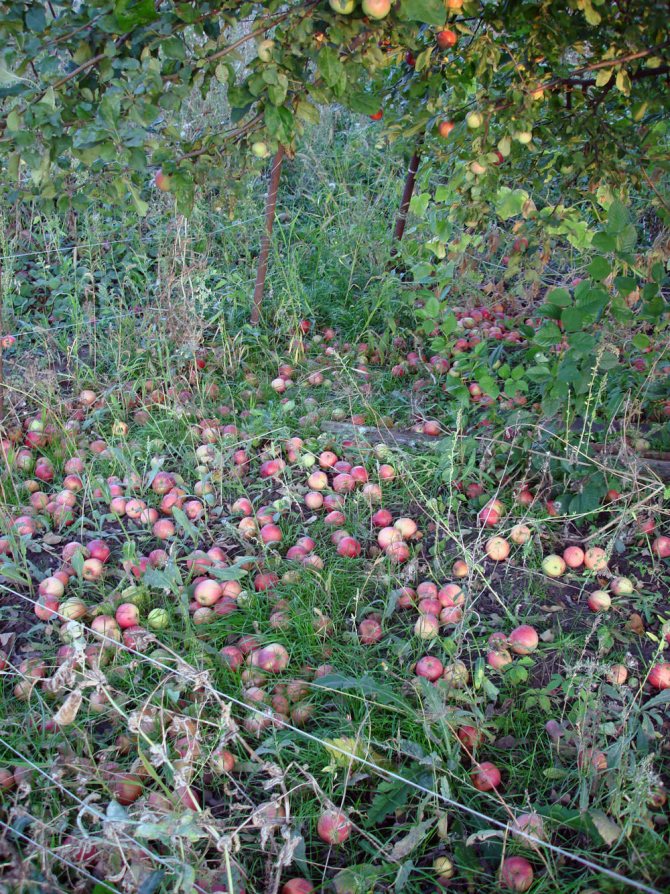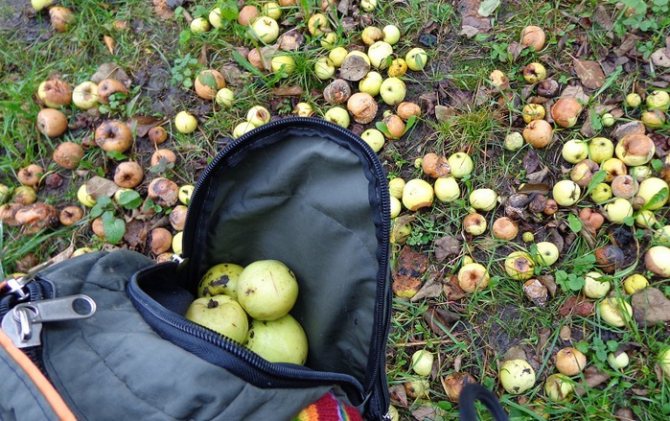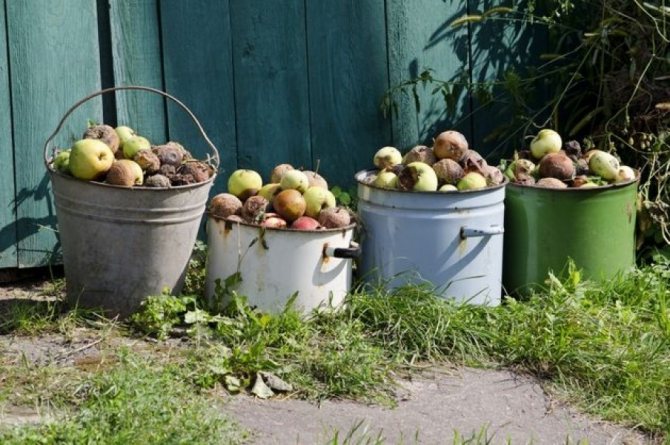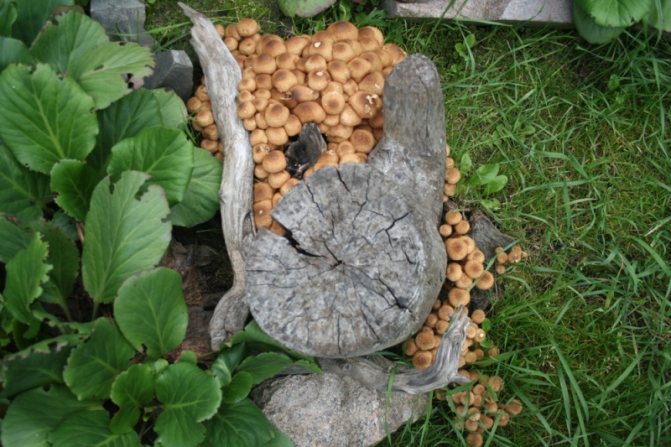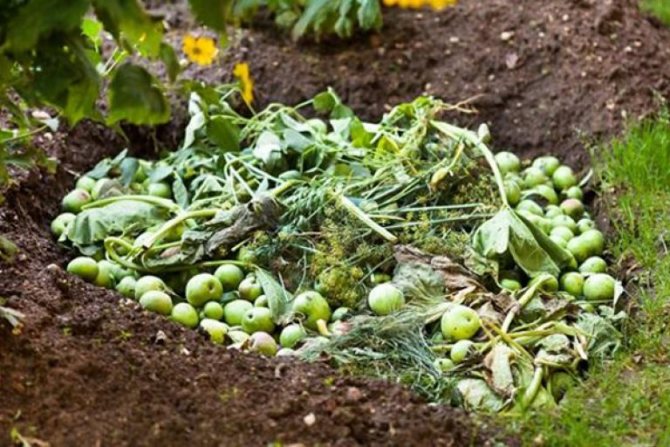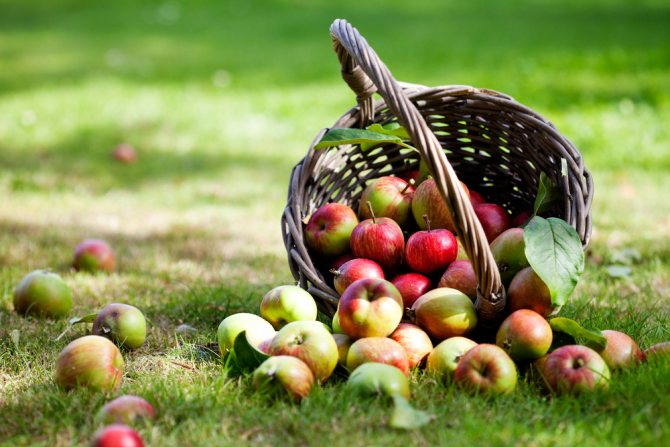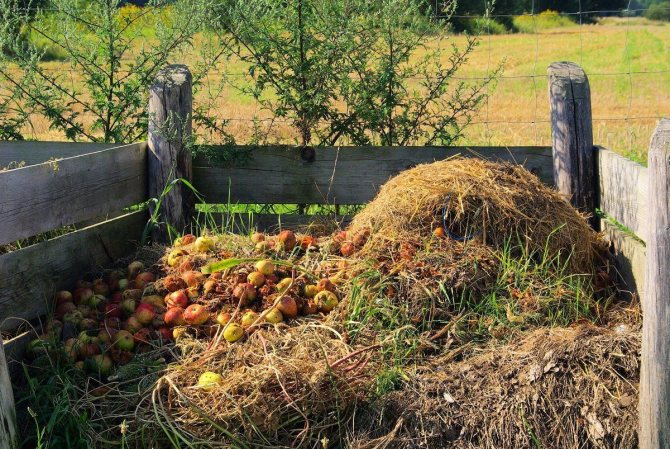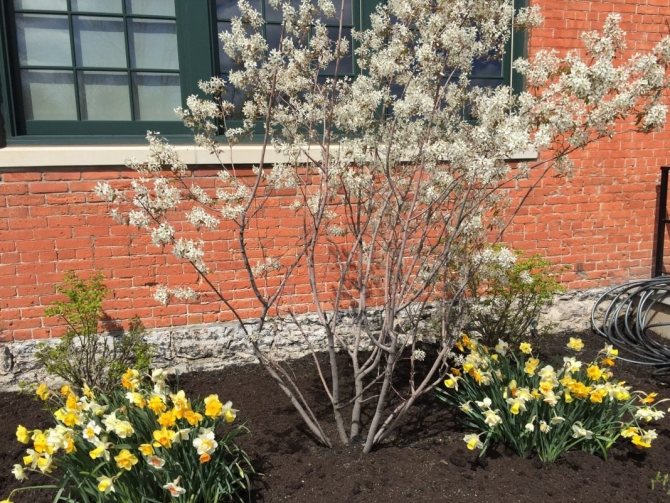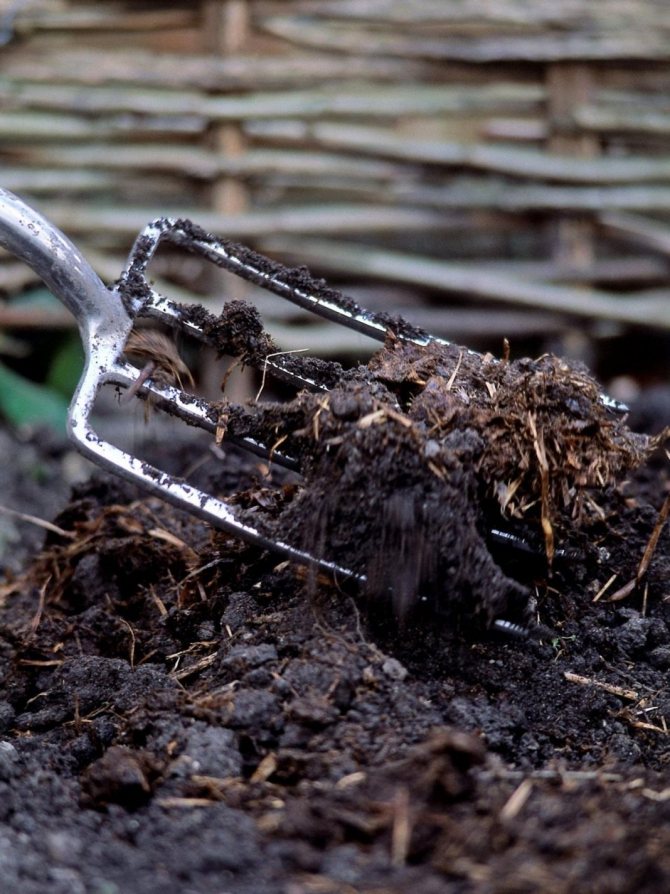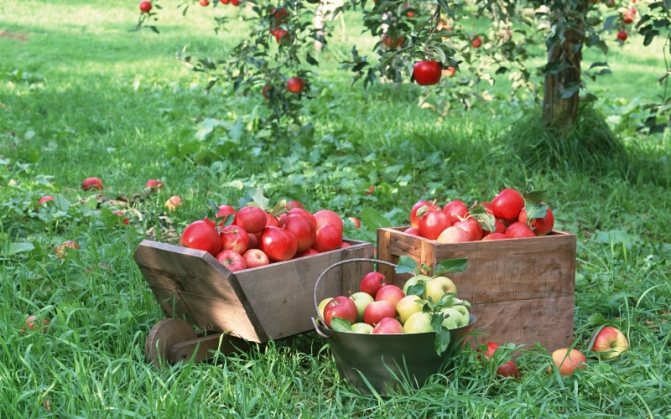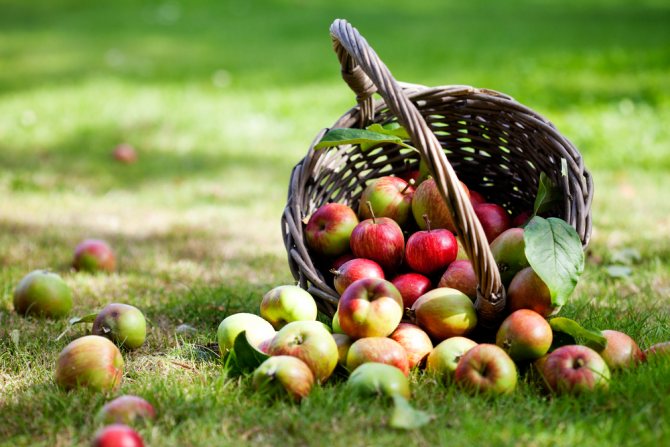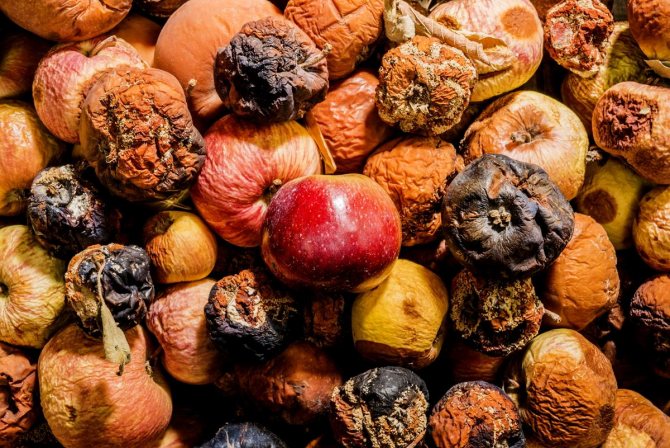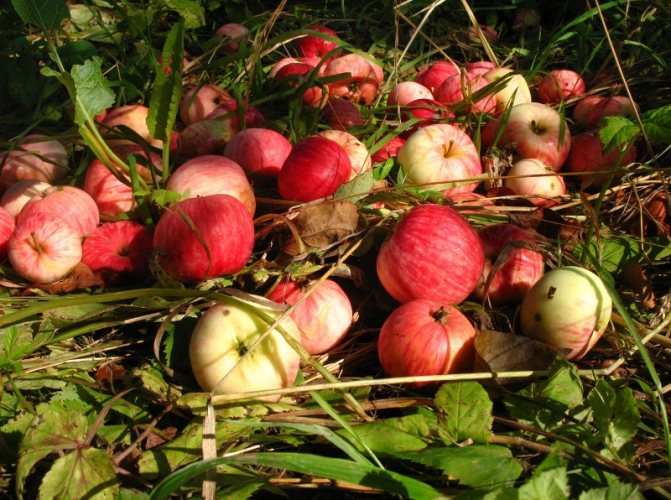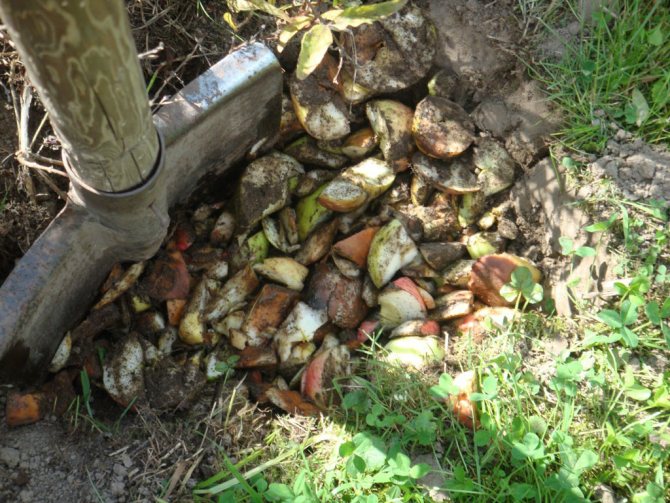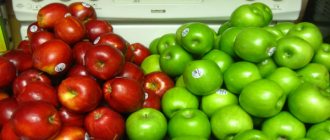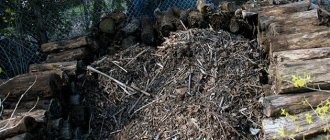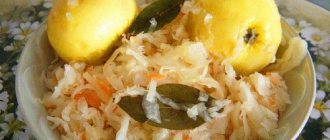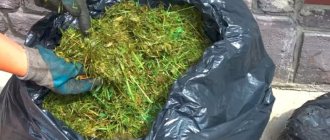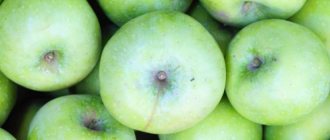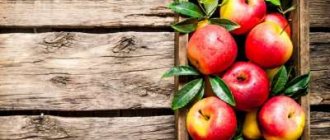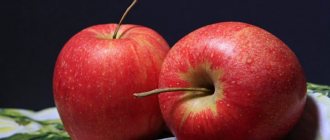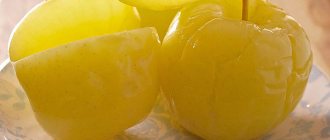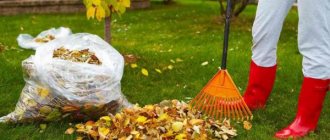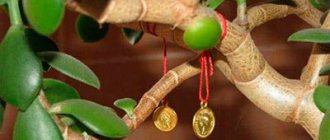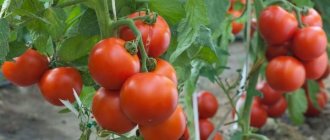Many gardeners who grow apple trees are wondering - what to do with fallen fruit? Beaten apples are no longer subject to storage, moreover, they quickly begin to deteriorate. It is good if you have a subsidiary farm - cattle or pigs will gladly help you dispose of the tasty carrion. Otherwise, they just throw it away. And it is completely in vain, because rotten apples serve as an excellent fertilizer for cultivated plants, including raspberries and strawberries.
Uses and benefits of fruits
Every summer resident is faced with the problem of fallen apples. Fresh fruits can be picked up and made natural juice or simply eaten, but most of the fruits remain on the ground and are not suitable for consumption - they should be used as fertilizer for the soil. To do this, the apples need to be chopped using a suitable soda inventory (for example, a shovel), after putting all the fruits in a heap, away from the fruit tree.
Do not cut fruit directly under the fruit tree. You can damage the root system, which will lead to the death of the apple tree or its disease (a fungal parasite will appear).
Fallen apples are an organic fertilizer for many crops. In a short period of time, it improves the condition of the soil, as a result of which, increases the yield of other garden plants. The fertilization process takes place in stages:
- Apple fertilizer preparation;
- Making shallow grooves around the plant that will be fed;
- The finished fertilizer is placed in the pits;
- The soil is mixed with apples;
- The grooves are closed with rotted manure and leaves;
- The final stage is to cover the fertilizer with a layer of earth.
Within 2 weeks, the applied fertilizer rotts and enriches the soil with useful components.
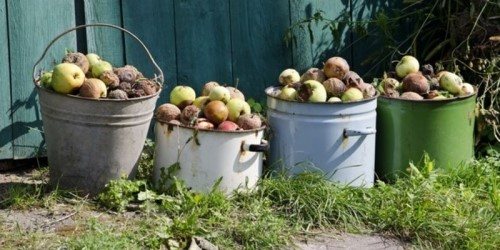
Fiber is an important component of rotten fruit. When it enters the soil, it becomes a breeding ground for the reproduction of microorganisms, enriching it with humus. From this, the fertile layer increases, the bed becomes loose and retains moisture better. And natural substances are quickly absorbed by plants.
Composting rotten vegetables
Pumpkins and zucchini, potatoes and cabbage, onions and carrots in a rainy summer or improper storage can rot and become unusable. Of course, it is always a pity to throw away vegetables grown with such difficulty, but you should not use them in the kitchen either - putrefactive bacteria may not be visible to the eye, but they completely affect the entire vegetable.
If you have not treated them with herbicides and pesticides, then you may well send them to compost and give a "second life". Vegetables, when composted properly, decompose rather quickly, especially if you grind them before laying them or at least cut them in half.
True, be careful, there are frequent cases when potatoes or zucchini grow anew next year in the nutrient medium of the compost pit. You shouldn't feel sorry for them - you won't get a big harvest from them, the composition of the chosen "soil" is very peculiar, so pull it out right away.
Organic fertilizer with the addition of rotten apples: preparation method
Rotten fruit can be used for composting by first building a compost pile. The main thing in this process is the correct bookmark.
The amount of carbonaceous substances should be approximately 4 times higher than the number of nitrogenous ones.
The carrion is placed in semi-open or well-ventilated compost. Why is this done? To get rid of fungal spores in rotten apples and convenient, periodic loosening of the heap. To increase the number of microorganisms at the start, all layers when laying are watered with biological additives that accelerate the composting process. The better oxygen is supplied during reproduction, the faster organic trace elements are converted into humus (approximately, within 3 months).
For the best effect, large apples passed through a crushing machine or chopped with a shovel (with an ax).
The compost pit must maintain a constant temperature (about 70 degrees) for the safety of the resulting fertilizer and the destruction of pathogenic flora. A rotten apple crop is combined with straw, dry leaves, soil or peat bog. Manure in the form of a thin layer will help speed up the combustion process.
The easiest way to create compost is to use apple humus and soil.
Rotten fruit can be composted as soon as it appears. Thus, the nutrient fluid will not flow into the ground and thus will not attract pests.
Apples falling into compost
This process does not require any special conditions or preparation. You can dig a compost pit in an inconspicuous place for the eyes or prepare a large container for this business in advance - plastic or knocked down from wooden boards. The second option will look more aesthetically pleasing on the site, if you choose a pit, then, from a practical point of view, it is better to equip it in a sunlit place. In a "warm" place, it will warm up better, the composting process will be much faster. By the way, plastic containers specially designed for compost can now be bought in the corresponding garden sections of supermarkets.
Homemade compost containers, photo:
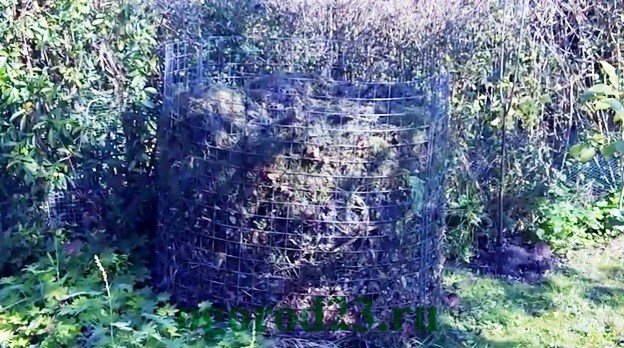

The contents should be regularly agitated to allow air flow to the compost masses. If for some reason you cannot do this regularly, take a wide plastic pipe (its length should be equal to the depth of the compost pit or container), make holes in it, and set it in the center of the pile. Thus, you will establish a ventilation process. It is very important not to place a pit or compost container under the tree - the shade will interfere with heating, and the root system of the tree will "pull" nutrients.
It is better to cover the bottom of the pit or container with straw; you can also use bark from trees, cut branches. As mentioned above, the apple carrion must be pre-crushed, in the intervals between the layers, a little wood ash or plain earth should be laid. To enrich the compost mass with nitrogen, plant ingredients can be added to the contents of the pit (container) - grass, foliage, peeling potatoes, carrots, and other food waste. The carbon source is straw, tree bark, even paper. An over-harvest of apples can benefit your orchard. Do not be afraid to let rotten, wormy apples into processing - everything in the pit will grind, turn into fertilizer.
The process of making liquid fertilizer from apples
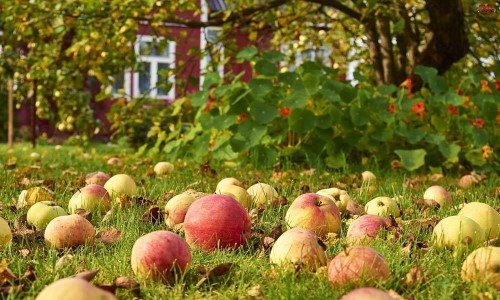

This method is a variant of liquid compost, which is very nutritious, and when used in the garden, it can be bred like slurry. The essence of the technique is to make apples ferment, having previously flooded them with water. A plastic barrel or can is suitable as a container for fermentation. In both cases, the lids should fit snugly against the neck of the vessel.
Step-by-step preparation of top dressing:
- Apples are finely chopped;
- The container is filled with half or a third of chopped fruits;
- Water is added;
- The dishes are placed in a warm place or in the sun;
- After 2 weeks, the finished slurry is stirred and is ready for use.
Water does not fill the entire barrel: 20 centimeters of empty space is left from the top. Fiber waste is dropped in the garden or between rows, for example, potatoes.
Gardeners reviews
I always put apples on compost. From diseases I fall asleep with urea. And the leaves of the apple tree are also with them. It is only worth knowing that apples acidify compost. Therefore, even then add ash there, for example.
Katie
We always compost apples, like other food waste. Then all this to the beds. I did not notice any global acidification. Everything grows normally in such a land. The test did not make "original" soil versus compost. Again, we always add ash to the soil, so that everything is perfectly neutralized.
Charlene
You can put apples and pears on the compost heap. The only exceptions are fruits affected by infections, as well as fruits from trees treated with chemicals.
Season for soil enrichment with fallen apples: combination with different crops
Dacha or private plots of houses are seething with life in the spring-autumn period. Soil preparation for the new season is carried out in late autumn. Up to this point, you can prepare apple compost, slurry, or dry mix. By the end of summer, apples begin to fall abundantly - this is the very time when you need to start making liquid fertilizer and compost. The third method is dry, does not require a preparatory stage, therefore, due to its simplicity, it is most often used by gardeners.
Volunteers go well with berry bushes such as raspberries and strawberries. It is used dry or composted. Fertilizers from under the apple trees can be dug up with the topsoil or introduced as mulch.
If we are talking about planting beds, then in the planned area, compost with volunteers and mineral fertilizers are introduced into the soil, which contribute to an increase in nutrients in the ground (superphosphate, potassium sulfate). In spring, tomatoes, zucchini, cucumbers or pumpkin can be planted in such soil. But cabbage, for example, does not like acidic soil, therefore, in order to avoid unwanted incidents, it is undesirable to use this kind of fertilizer.
Based on the chemical composition, apple fertilizer is suitable for any plants that need potassium.
What to feed?
Apple fertilizer has a beneficial effect on garden berry crops - raspberries, blackberries, gooseberries, currants, strawberries. If you fertilize them with apples, you can protect against diseases and pests, improve growth, development and increase yields.
You should add compost from a volunteer in the following way:
- Make shallow pits between the rows or around the plants.
- Pour chopped fallen apples into the grooves.
- Stir with earth and cover with a layer of soil on top.
Compost can be used in a different way. All its components - apples, rotted leaves, vegetable tops, weeds, are laid in layers together with the ground on the main plot of land. For more effective fertilization, you can add dry chicken manure, ash, urea. The top layers of such a bed should be sand, humus and earth. Each layer should be carefully leveled with a rake.
This method of treating the site is suitable for autumn care. With the arrival of spring, the garden needs to be dug up for planting garden crops. Cucumbers, tomatoes, pumpkins and zucchini will grow best on such soil. The soil is suitable for any crop, but these vegetables will produce an especially rich harvest.
Another method of composting is used by landowners. All fertilizer components are placed in a large container, filled with water. To obtain fertilizer, it is important that the container with the contents is kept warm in direct sunlight. Cooking time - 2 weeks.As soon as bubbles appear on the surface, the liquid is diluted with water 1:10 and the plants are watered.
Please note: Compost is ideal for fertilizing greenhouse soil. To do this, after harvesting, you can lay out crushed apples over the entire surface of the site. To eliminate the high acidity of the soil, which is not suitable for greenhouse plants, it is necessary to use substances to neutralize it.
Apples for fertilization, which is better to use. Causes of falling fruits
There are three main reasons why apples fall:
- Natural process - the fruit is ripe;
- External influence - weather conditions (hail, wind, rain);
- Fruit tree disease: damage to branches, leaves, root system or the fruit itself.
If the tree has been affected by fungus, viral or bacterial diseases, then fallen fruits from under it cannot be used. It is recommended to take them out of the site altogether.
As for the first two points, they are 100% suitable as fertilizer. Completely rotten apples also fall into this category.
In order for the top dressing to be of the highest quality and rich in nutrients, it is better to use the carrion along with the tops of garden crops, foliage and grass.
If there is tall grass under the apple trees, then you must first mow it, and then shovel it into one heap with the fruits.
Prohibited! Use the fruits of a tree that has undergone chemical processing in the time range from 1 to 3 months as a supplementary food.
Apples can crumble due to lack of moisture in the soil or improper feeding. In this regard, it is very important to properly care for fruit trees: water in a timely manner, process with the necessary means, get rid of unnecessary weeds. Strict implementation of the recommendations is the key to a good harvest.
Composting spoiled food
In summer, in the country, the situation with sour soup or fermented compote is not as rare as we would like. Summer heat and the absent-mindedness inherent in rest lead to the fact that some foodstuffs are spoiled. In addition, sometimes a couple of spoons of a dish remain in the pan, and the hostess has already prepared something new.
Such food can also be composted without a twinge of conscience, however, there are several restrictions. The following products decompose poorly, and sometimes emit an unpleasant odor in the process:
- bones and meat;
- fish (both fresh and thermally processed);
- citrus fruits in large quantities (harmful to worms and soil microorganisms);
- pits of cherries, plums, cherry plums and other berries (they decompose for 1-1.5 years, you cannot make quick compost with them);
- nutshells (same problem as with seeds).
All other spoiled foods can be composted.
As you can see, rotten food itself is safe for compost, decomposes well and becomes a nutritious fertilizer. Therefore, do not forget to sort volunteers and other plant residues before composting, and then rejoice in waste-free gardening and rich harvests.
The positive effect of fallen apples on cultivated plants and soil
Many gardeners have the wrong opinion and fear that fallen fruits have a detrimental effect on the soil and plant development, but this is not entirely true.
Is it possible to introduce an infection into the soil? Answer. There is a risk, but when rotten apples ripen in compost, all pests die due to the high temperature.
Apple compost is a strong soil oxidizer. Is it so? Answer. Most mineral impurities and any organic matter are capable of oxidizing the water index. Fruit compost is used as a mulch composition. It is recommended every few years to carry out liming of the soil using wood ash, lime or dolomite flour.
Dolomite flour.
By themselves, apples contain a large amount of nutrients that have a beneficial effect on crops and soil. The pulp of rotten fruits is quickly processed and leaves no residue. Berry bushes and some vegetables will grow in enriched soil, and the harvest will be significantly larger.
Unpleasant rotten smell... In the case of using rotten apples for the pit, there are two options for the development of events: with the correct laying and installation of the structure, there will be no smell; if the hole was laid incorrectly, then the result is the opposite. The use of dry admixture prevents any harmful vapors from escaping from the ground. For the fermentation process, the smell will only be felt when the lid is opened.
Using a volunteer for compost can attract insects and rodents.
In the summer, the pit must be watered with water - moistening in order to speed up the maturation of the compost. The smell of forest soil indicates the readiness of the fertilizer.
Compost shouldn't smell bad.
By smell, you can determine what is missing in the procurement process:
- Ammonia is a sign of an excess of nitrogen components. You can fix the situation with torn paper and cardboard, adding it to the compost.
- Rotten eggs are a sign of a lack of oxygen. In this case, add straw or shavings and shake the structure with fertilizer.
Output
There are three methods of using fallen apple fruits as enrichment of soil and vegetation, for early ripening of the crop and obtaining natural products, without the use of chemicals: dry, liquid and combined - compost.
Apparently, it is better to use apples as soil fertilizer in dry form. They can be sorted out to prevent mold from entering the soil, then crushed and the finished consistency can be applied under the berry bushes or trees by digging them into the ground. To improve the effectiveness of this fertilizer, you can add a small amount of manure or dry leaves. To avoid damage to the soil by the fungus and the development of pathogenic bacteria, sprinkle the soil with urea on top.
For reference! You cannot leave rotten apples in the garden. This can lead to the formation of epidemic fungal diseases. As a result, vegetable crops: tomatoes, cucumbers or potatoes will have to be treated with chemicals.
Recommendation! To neutralize acidity, it is better to add ash, chalk, lime or dolomite flour to the compost.
Knowing the level of soil acidity, it is easy to adjust and select the required amount of components for apple feeding, in order to avoid the harmful effects of raw materials on the garden and its “inhabitants”.
Features of gas connections
When connecting gas stoves, columns and other types of equipment, flexible hoses are also used. Unlike water models, they are yellow and do not pass environmental testing. End steel or aluminum reinforcement is used for fixation. There are the following types of devices for connecting gas appliances:
- PVC hoses reinforced with polyester thread;
- made of synthetic rubber with stainless steel braid;
- bellows made in the form of a corrugated stainless steel tube.
Holding "Santekhkomplekt" offers engineering equipment, fittings, plumbing and accessories for its connection to communications. The assortment is represented by products and materials of well-known foreign and domestic manufacturers. Discounts apply for bulk purchases, and the quality of products is confirmed by certificates of the established form. For informational support and assistance, a personal manager is assigned to each client. The ability to arrange delivery within Moscow and to other regions of the Russian Federation allows you to quickly receive the purchased goods without unnecessary hassle.
At the end of the technological and production tasks related to the arrangement of the sewer system in an apartment building, an industrial building, as well as in a private household, it is required to test the involved system by the forced spill method. This task is applied to identify possible defects or improper installation of the entire sewer part involved, and the test report for internal sewerage systems and gutters will be material evidence of the acceptance of the facility.
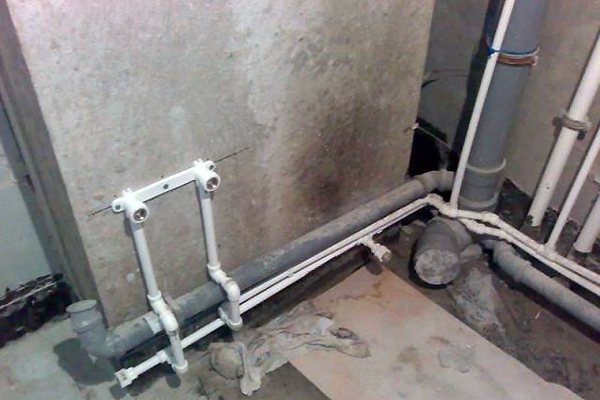

Visual inspection should be accompanied by the introduction into the certificate of testing of internal sewage systems and gutters according to SNIP, which is currently represented by the current regulations of the series "D" appendix, which corresponds to SP 73.13330.2012 "Internal sanitary-technical systems of the building", recently a new one has been applied updated working edition for SNiP 3.05.01-85.
During the period of multiple fruits of an apple orchard or individual massive fruit trees, it is not possible to process not the entire crop for its intended purpose: to cook jam, compote or prepare dried fruits. Gardeners and summer residents are faced with the problem of massive amounts of fallen apples, which, as a rule, are thrown away in order to keep the garden clean. The way out of this situation was the use of fallen apples as fertilizer.

